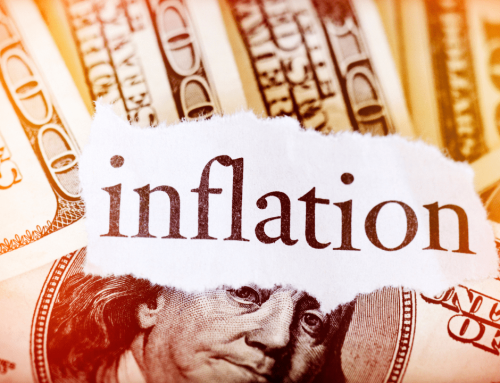On Thursday, April 30, Receivables Management Association International (RMAI) hosted a webinar entitled:
Stay-Up-To-Date: Tracking State Level Response to COVID-19-Impact on Collections
The webinar’s featured speakers were:
- Alexandra Megaris: Venerable LLP
- Tamar Yudenfreund: Encore Capital Group, Inc.
This post will highlight the key points covered in the 30-minute webinar.
IMPORTANT NOTE: This post is not intended to be legal advice and may not be used as legal advice. Legal advice must be tailored to the specific circumstances of each case.
The over-arching theme of the webinar was that we are currently in an extremely fluid situation with regard to how states are approaching collections in the face of COVID-19. The speakers urged attendees to be vigilant in tracking up-do-date information through sources, including, but not limited to:
- Google alerts
- RMAI alerts
- ACA alerts
- Updates from law firm sources
CREDIT CARD DEBT: STATES WITH ACTION TAKEN
With regard to credit card collections, as of this writing, three states have enacted some level of restrictions on the collections industry:
- NEVADA: Based off the Nevada Governor’s emergency directive closing all non-essential businesses, on March 20, the Department of Business and Industry deemed collection agencies non-essential:
- The directive required all Nevada-based collection agencies to close, while holding that out-of-state collection agencies must cease collection efforts with Nevada consumers and residents
- The state-wide directive has been extended until May 15, 2020.
- MASSACHUSETTS: On March 27, the Massachusetts Attorney General issued an Emergency Regulation restricting debt collectors as such:
- Illegal for debt collectors to file new lawsuits
- No new bank or wage garnishments
- Debt collection agencies may not make unsolicited collections calls to consumers
- Permissible to respond to requests made by a consumer to be contacted.
- On May 6, 2020, the U.S. District Court for the District of Massachusetts issued a temporary restraining order enjoining the Massachusetts Attorney General from enforcing the provisions of the Emergency Regulation pertaining to collection calls and enforcement of debts in court. Please consult with your own counsel regarding whether to proceed with collection activity in Massachusetts. Here is a link to the TRO: https://www.acainternational.org/assets/court-grants-aca-motion-for-preliminary-injunction/troorder.pdf
- WASHINGTON, DC: The DC City Council passed legislation restricting debt collectors, as such:
- Illegal for debt collectors to file new lawsuits
- No new bank or wage garnishments
- Debt collection agencies may not “initiate a communication” with a debtor through unsolicited calls, emails or texts.
- Permissible to send a monthly statement or payment receipt, or deposit a voluntary payment from a consumer.
As of this writing, New York and Ohio are known to be considering restrictions. However, as we noted at the outset, this is a fluid situation that could change by the day
STUDENT LOAN AND MEDICAL DEBT: STATES WITH ACTION TAKEN
The CARES Act included relief that applies to student loans held by the U.S. Department of Education. In this regard:
- All payments due will be suspended through September 30, 2020. Interest will not accrue during this period, and accounts will be treated as if payments were made for credit reporting and loan forgiveness program purposes. All involuntary collection for affected loans (including wage garnishments or reduction of tax refund or any other Federal benefit)) are also suspended during this period.
Several states have acted with regard to student and/or medical debt:
- NEW YORK: Has instituted the following directives effective until May 17:
- Applies to student loan and medical debt owed to the State of New York and referred to the Attorney General for collection
- All collections halted
- Accrual of interest and collection fees have been automatically suspended on all outstanding state medical and student debt referred the OAG for collection
- NORTH CAROLINA: Has instituted the following directives until May 27:
- Halted collections on all student loan and medical debt owed to the State of North Carolina
- Excludes action where necessary to meet statutes of limitations or other court-imposed deadlines.
- ILLINOIS: Announced new guidance as follows:
- Encouraging debt collectors and debt buyers to work with consumers to accommodate hardships due to the COVID-19 crisis, including to suspend collection activity for a period of at least 60 days
The Nevada, Massachusetts and Washington, DC directives and legislation outlined above also apply to student loan and medical debt in those states.
GARNISHMET OF FEDERAL STIMULUS PAYMENTS
A number of states have enacted prohibitions or limits on garnishment of Federal stimulus funds from individuals:
- California
- Indiana
- Massachusetts
- New York
- Oregon
- Rhode Island
- Vermont
Again, it’s not unreasonable to assume that additional states will move to protect stimulus monies from garnishment.
RMAI’S HARDSHIP POLICY
The webinar ended with a review of RMAI’s stated policy with regard to addressing hardships during these unprecedented times. The policy is included below in its entirety:
- Work with and be sensitive to consumers who have encountered unforeseen circumstances.
- Temporarily or permanently suspend collection activities when a consumer demonstrates that he or she is experiencing significant financial hardship.
- Accept consumer requests in both oral and written form.
- Cease collection activities when you learn the consumer’s only source of income is from exempt sources, such as Social Security or Supplemental Security Income benefits, and that the consumer has access to no other assets.
- Place collection holds with respect to the consumer, including all of the applicable consumer’s accounts you may own. In other words, all of the consumer’s accounts should be suspended, not just on an account-by-account basis.
- Consider some other form of assistance such as an extended grace period, balance reduction, or the suspension of interest.
- CARES ACT Stimulus Funds: to the degree the federal stimulus funds are ascertainable, RMAI asks members to avoid soliciting those funds or otherwise attaching those funds for the purposes of satisfying a debt or money judgment. If a consumer wishes to use these funds for the payment of an obligation, that is acceptable, but should not be solicited.
We will continue to follow COVID-19-related news with regard to the collections industry.
Error: Contact form not found.





